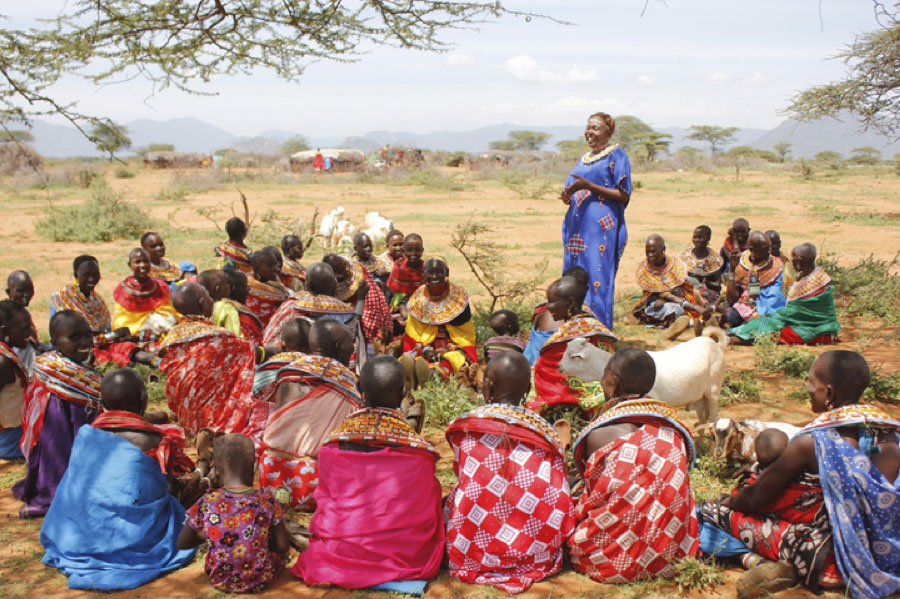Salante Leburkash, the Chairwoman of Merilosho Cultural Manyatta has lived through many droughts in her village in the vast North Kenyan pastoralist territory. In fact, this climatic disaster had wreaked havoc on planned activities in the community. But she and her village mates were determined to push through with the project. She rued, however, that many families were not there with them in these activities. They had moved in search of refuge and relief from the punishing drought. Those present will someday share the knowledge and skills gained in these workshops, she assured herself.
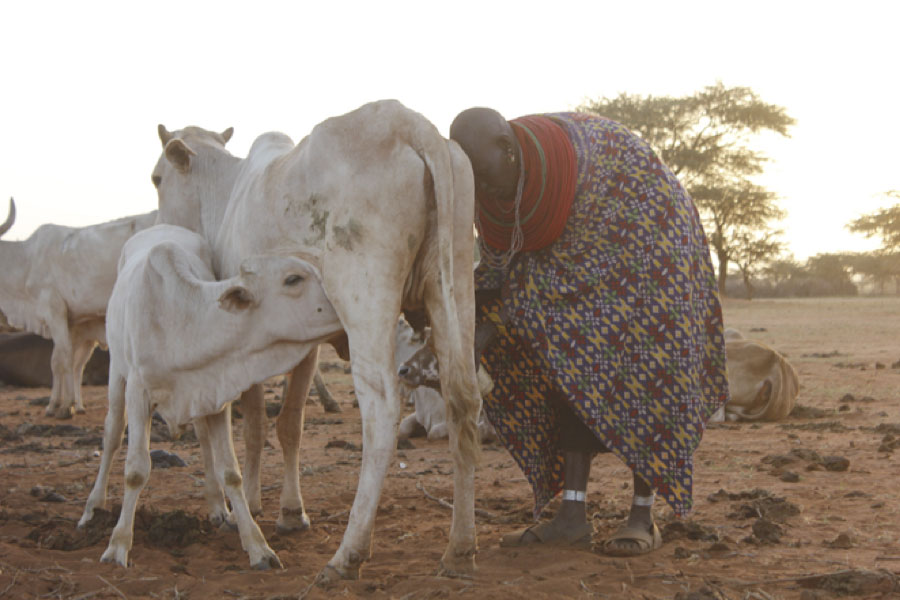
She pondered on the condition of village women and children; knowing the stories of her mother and grandmothers, of older women who had to live with the harsh environment, the restrictions and treatment of Samburu women imposed by their culture. She vowed to do something for herself and her daughters so they could have a different future, yet rooted in their culture. She envisioned Samburu women who were empowered, knowledgeable, assertive of their rights. Those who came before them and many today are silent voices, women and girls denied of their rights and robbed of opportunities.
As participants gathered for the last of a series of workshops, Salante was not alone in this excitement and thrill. She felt the collective joy of more than three hundred women and other community members who have acquired knowledge, courage and confidence in embracing their culture as a pastoralist tribe.
She vividly recalls that the initiators, the Samburu Women Trust (SWT) encouraged their attendance and participation in the project. In the inception workshop, community elders and women were informed of the project’s objectives. Salante and her fellow women of Merilosho cultural manyatta signified their interest to join the collective struggle and voice out SWT initiatives in this pilot project.
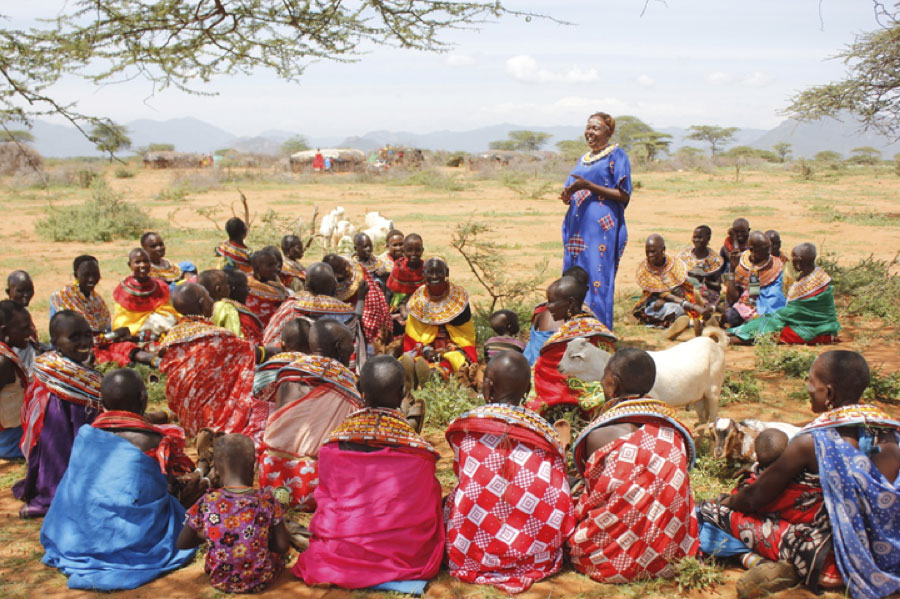
The subsequent activities saw Salante as an empowered, capable enabler of other Samburu women and youth who were coaxed out of their shell, of personal and cultural insecurities and fears. With the intergenerational mixed gender learning interaction sessions, the youth appreciated the vast oasis of their elders’ expertise from which grew their awareness of the multi-faceted indigenous knowledge.
This was followed by the SWT Youth mentorship meetings in two youth camps where the indigenous youth were taught to emulate Samburu role models. Salante and Ntinina Leosono, the latter a volunteer, as SWT facilitators helped the young women identify the challenges they face and the doors of opportunities open to them to overcome these obstacles so they can be in a better situation.

Another workshop followed where Samburu boys and young women discussed and charted their future and society where they can make informed decisions and claim their rights. Then two forums were held where Samburu girls debated and articulated the assertion of their rights to be involved and engaged in strengthening their cultural identity and traditional knowledge.
How are conflicts mitigated and resolved? In two sessions that SWT held, elders informed the youth about strengthening their own indigenous court processes and approaches to conflict resolutions.
All the stories and shared knowledge on Samburu culture were documented, and the participants from villages were encouraged to gather data relevant to their culture.
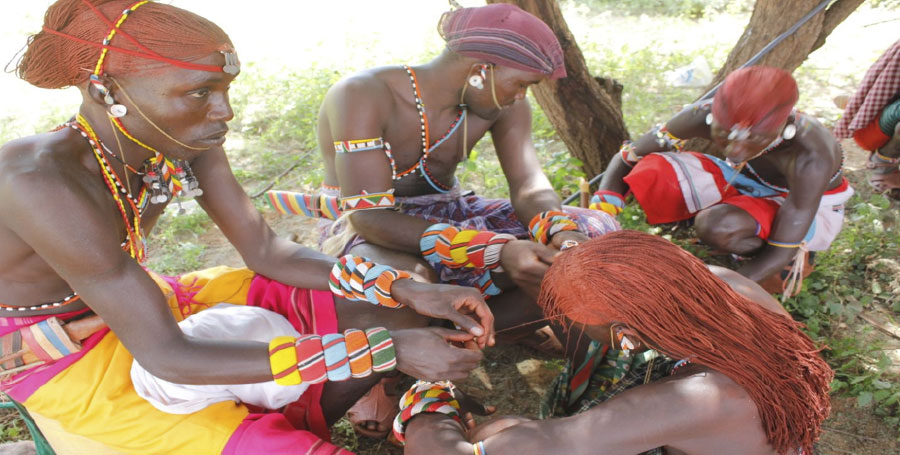
Later at the cultural festival, Salante and Ntinina watched cheerful women showing their crafts to an appreciative crowd. The two mused that it was a resurgence of consciousness about their Samburu identity. They were proudly reviewing the materials that were outputs of their project: interviews that were filmed, written and published. They are themselves participants and witnesses to a new awareness of a vibrant Kenyan indigenous peoples. The Samburu community affirmed and validated their culture which was projected and appreciated nationally and globally.
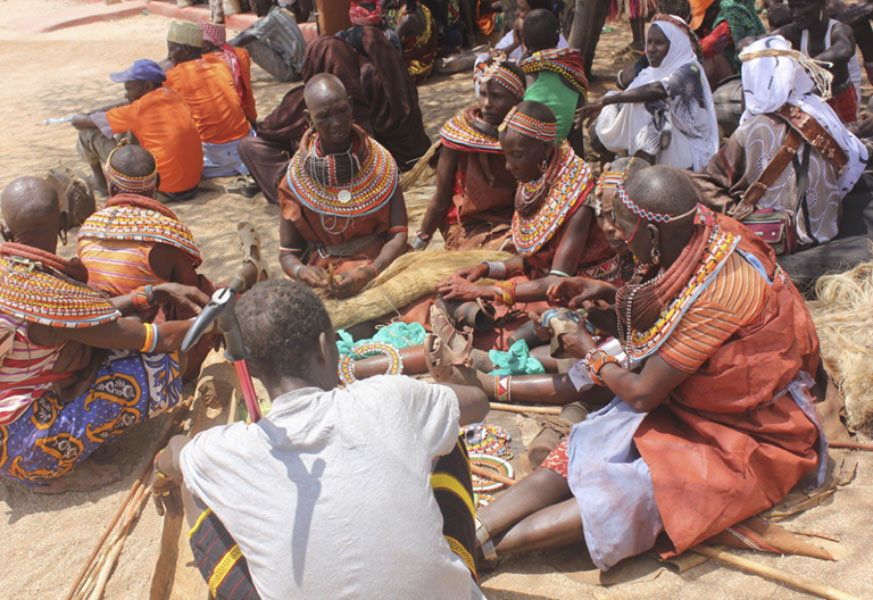
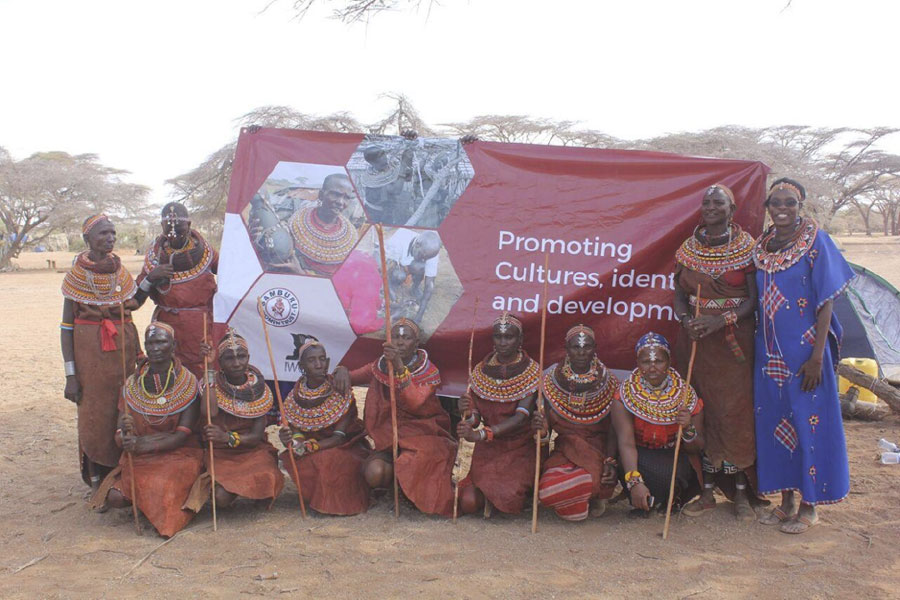
The project entitled ”Nurturing Culturally Grounded and Socially Empowered Samburu Women and Girls in Northern Kenya” was supported by the Indigenous Ways of Knowing and Learning Fund or the Pawanka Fund and implemented by the Samburu Women Trust from JULY 2015 – JUNE 2016.

